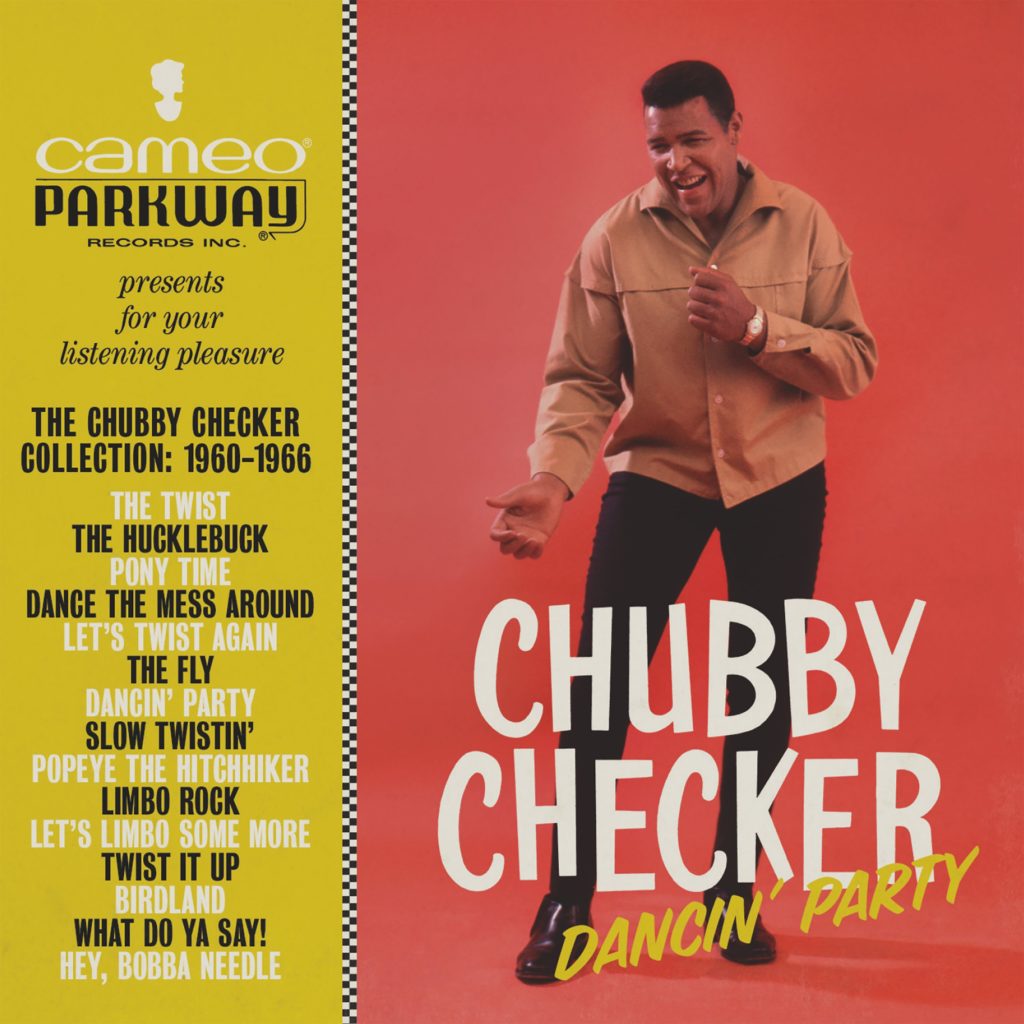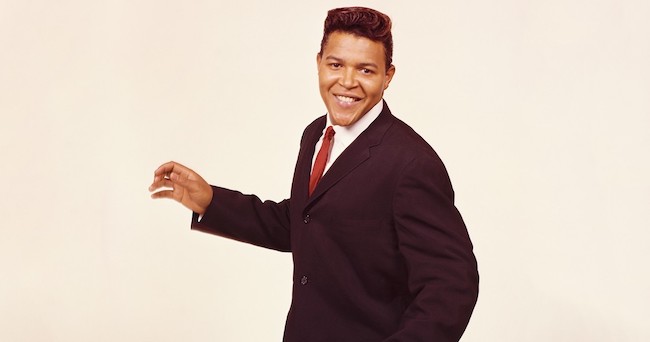 It’s been said that rock and roll slumped in the late 1950s, when Elvis Presley entered the Army and Buddy Holly died, and that it remained in a weakened condition until the Beatles and other British Invasion acts emerged to revitalize it in 1963 and 1964. In fact, lots of great artists rode the charts during the ostensible down period, including the Everly Brothers, Del Shannon, the 4 Seasons, the Crystals and countless others. But it’s not difficult to see why these years have a reputation for shlock, as they also witnessed the rise of many syrupy and forgettable pop acts.
It’s been said that rock and roll slumped in the late 1950s, when Elvis Presley entered the Army and Buddy Holly died, and that it remained in a weakened condition until the Beatles and other British Invasion acts emerged to revitalize it in 1963 and 1964. In fact, lots of great artists rode the charts during the ostensible down period, including the Everly Brothers, Del Shannon, the 4 Seasons, the Crystals and countless others. But it’s not difficult to see why these years have a reputation for shlock, as they also witnessed the rise of many syrupy and forgettable pop acts.
One of the most prosperous record companies of the time, the Philadelphia-based Cameo-Parkway (actually two separate labels), straddled the fence, scoring hits with songs that became deserved rock and roll classics (“96 Tears” by Question Mark and the Mysterians comes to mind), while also issuing a fair number of throwaways. Among three new well-annotated reissues from the label, you’ll find music that belongs in both of these categories.
The series devotes one whole disc solely to the label’s biggest seller, Ernest Evans, who is better known as Chubby Checker (a name derived from Fats Domino). Songs that popularized assorted dance crazes dominate the CD, which is called Dancin’ Party: The Chubby Checker Collection (1960–1966).
Most notable among these crazes was the twist, the anyone-can-do-it dance that made the singer rich and famous. Checker started the fad with “The Twist,” a cover of an old Hank Ballard B-side that Billboard magazine named the biggest chart hit of the past half century in 2008. Checker took that song to #1 not just once but twice, in 1960 and again in 1961. He then had big hits with “Let’s Twist Again” in 1961, “Slow Twistin’” (with Dee Dee Sharp) in 1962, and “Twist It Up” in 1963, all of which you’ll find on Dancin’ Party.
Watch Chubby Checker demonstrate “The Twist”
Checker—who also appeared in two movies built around the twist—followed his success with this dance with popular songs about a bunch of others, including “The Hucklebuck,” “Pony Time,” “(Dance the) Mess Around,” “The Fly,” “Limbo Rock” and “Let’s Limbo Some More.” All of these are on Dancin’ Party, too, as is a song that shares the album’s title, where he namechecks a variety of dances.
Typical of this era, incidentally, almost none of this music was penned by the singer. Much of it came from the team of Kal Mann and Dave Appell; Checker’s only writing credit in this anthology is for a song called “Hooka Tooka,” which he cowrote with folksinger Judy Henske.
Related: Question Mark and the Mysterians’ Cameo-Parkway classic “96 Tears” has a wild backstory
Listening to this material, you may find it difficult to understand why Checker became such a phenomenon. He was a likable and energetic vocalist but not an exceptional one, and his frequently sax-spiced records, while spirited, have not aged well. At best, they work as catchy reminders of a simpler time; at worst, on tracks like “(At the) Discotheque,” “Popeye the Hitchhiker” and the aforementioned “Limbo Rock,” they seem simply inane.
 A second Cameo-Parkway anthology demonstrates that Checker had no monopoly on dance-floor music. Called You Can’t Sit Down: Cameo Parkway Dance Crazes 1958–1964, this collection includes three of his biggest hits, as well as his “Twistin’ U.S.A.,” which uncharacteristically stalled on the charts at #68, but the bulk of the 22 tracks on the CD—many by Appell and Mann—feature other artists.
A second Cameo-Parkway anthology demonstrates that Checker had no monopoly on dance-floor music. Called You Can’t Sit Down: Cameo Parkway Dance Crazes 1958–1964, this collection includes three of his biggest hits, as well as his “Twistin’ U.S.A.,” which uncharacteristically stalled on the charts at #68, but the bulk of the 22 tracks on the CD—many by Appell and Mann—feature other artists.
[easy_sign_up title=”Sign up for the Best Classic Bands Newsletter”]
Some of them, such as Bobby Rydell’s “The Cha-Cha-Cha,” Don Covay’s “The Popeye Waddle” and the Taffys’ “Everybody South Street” (not to be confused with the Orlons’ “South Street”) represent the nadir of late ’50s/early ’60s rock. But there are also several excellent recordings here, such as the Orlons’ “The Wah-Watusi” and Dee Dee Sharp’s “Mashed Potato Time,” both of which were #2 hits in 1962, and the Turbans’ “When You Dance,” which—this album’s title notwithstanding—entered the top 40 in 1956.
Most of those numbers have been widely anthologized before, but that’s not the case with many of the 20 tracks on the last and most noteworthy of these new collections. You Got the Power: Northern Soul 1964-1967—which skips the dance business in favor of the genre suggested by the title—embraces quite a few first-rate obscurities that you won’t find even on the four-CD, 115-track 2005 box set, Cameo-Parkway 1957-1967.
Highlights abound. Among them: Evie Sands’ “Picture Me Gone” which was written by the great singer/songwriter Chip Taylor (whose “Angel of the Morning” Sands also recorded before Merrilee Rush turned it into a smash hit); Bobby Paris’ “Night Owl,” which sounds like a Phil Spector production (but isn’t); and “Envy (In My Eyes),” by the Orlons, which seems redolent of the Fifth Dimension.
Also: Nikki Blu’s “(Whoa Whoa) I Love Him So,” written by Thom Bell, who later became a Philly soul hit machine; Hattie Winston’s “Pass Me By,” which pledges allegiance to both pop and Motown; Ben Zine’s “Village of Tears,” a likable 1966 throwback to pre-Beatles pop/rock; and “You Didn’t Say a Word,” from Yvonne Baker, who is best known as the lead singer on the Sensations’ Top 5 hit from 1962, “Let Me In.”

